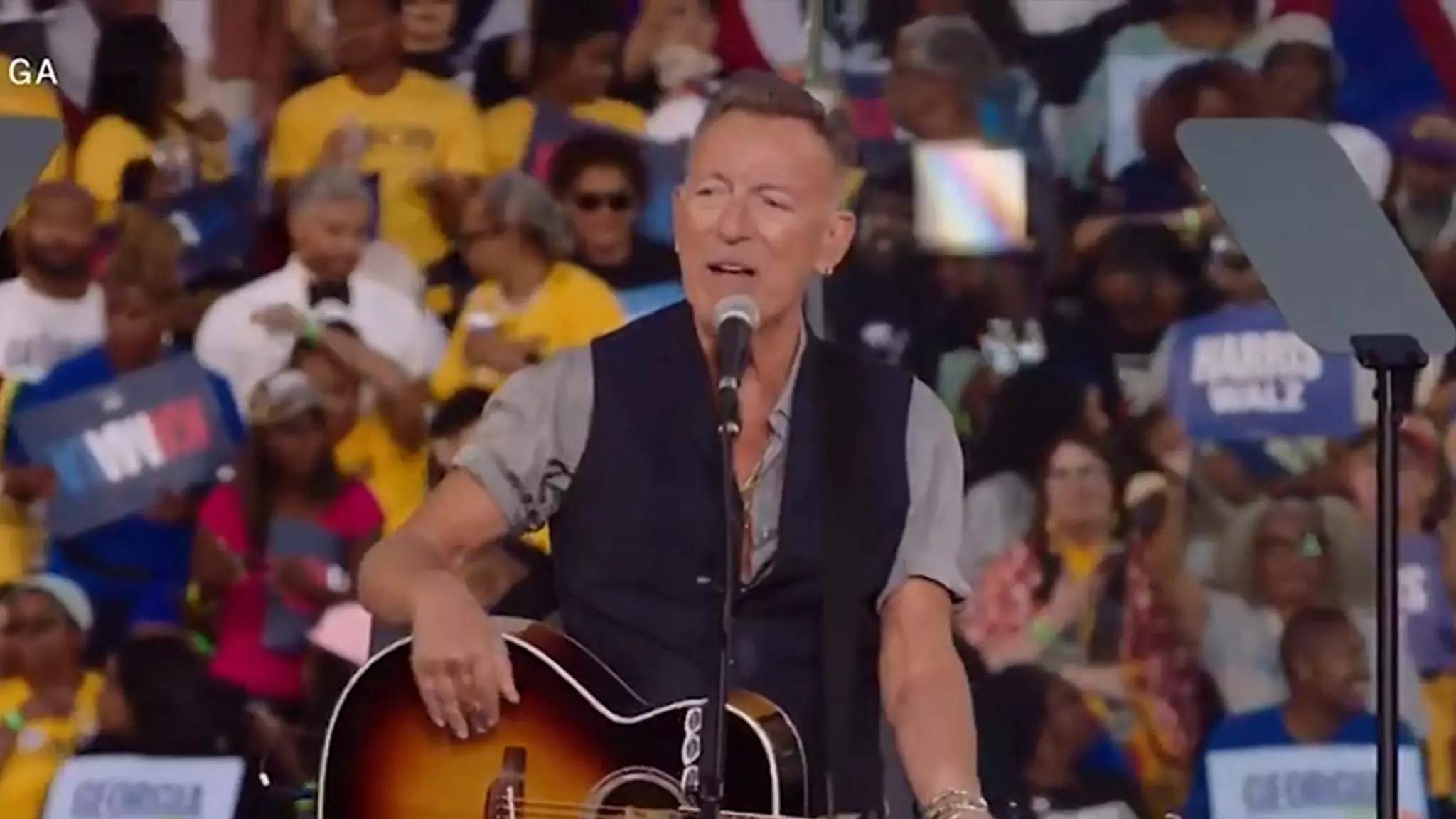Bruce Springsteen, a figure synonymous with American culture and social commentary, recently transformed a political rally into a compelling blend of music and activism. His performance in Georgia for Kamala Harris not only entertained but also underscored the urgency of the political climate. As an artist whose lyrics frequently address the struggles and aspirations of the American people, Springsteen’s endorsement carries significant weight, especially at a time when the nation seems deeply divided.
During his set, Springsteen made a bold pronouncement regarding the current political landscape, bluntly characterizing Donald Trump as someone vying for a position that diverges from the traditional presidency. Describing Trump as someone aiming to become an “American tyrant” suggests a critical perspective on his administration’s actions, which many view as authoritarian in nature. Springsteen’s remarks resonate with a growing number of citizens who fear the erosion of democratic principles under Trump’s leadership.
Springsteen didn’t hold back in expressing his criteria for a candidate worthy of his support. He emphasized the importance of the rule of law, the value of peaceful transitions of power, and the protection of women’s rights—issues that have become focal points in contemporary political discourse. His declaration that only one candidate embodies these principles isn’t merely a personal endorsement; it reflects a larger sentiment shared by a significant segment of the electorate seeking restoration of democratic ideals.
Moreover, Springsteen’s criticism of Trump’s understanding of American civics serves as a poignant reminder of the vital role that education plays in a functioning democracy. By suggesting that Trump is disconnected from the foundational principles of American governance, he shines a light on the dangers of an uninformed electorate, a dilemma that has implications for the future of the nation.
Springsteen was not alone in lending his voice to support Harris. The involvement of other high-profile figures, such as Tyler Perry, demonstrates a trend where celebrities actively engage in political discourse. Perry’s metaphor about weaving America into a beautiful quilt rather than a single sheet illustrates a vision of diversity and unity, reinforcing the theme of inclusiveness that Harris aims to promote. Such collaborations between artistic expression and political advocacy can galvanize public sentiment and mobilize voters, particularly young Americans who are often inspired by their favorite artists.
The recent rallies featuring celebrities like Eminem signify a strategic approach that Harris and her team are utilizing to bolster her campaign—not just by addressing political issues, but by creating a cultural context that resonates with the public. The merger of entertainment and activism is a powerful tool in contemporary politics, indicating a shift in how campaigns are run in an increasingly media-centric world.
As the political landscape continues to evolve, the role of music and celebrity influence becomes even more critical. Artists like Bruce Springsteen, who utilize their platforms to advocate for integrity in governance, reflect a broader responsibility that comes with fame. Their contributions transcend entertainment, becoming vital voices in the democratic process. Looking ahead, it is crucial for voters to consider not just policies but the principles behind them, as advocated by influential figures like Springsteen.
In a polarized environment, the future of democracy may very well depend on the ability of artists and citizens alike to articulate a vision that champions unity and respect for democratic institutions.

